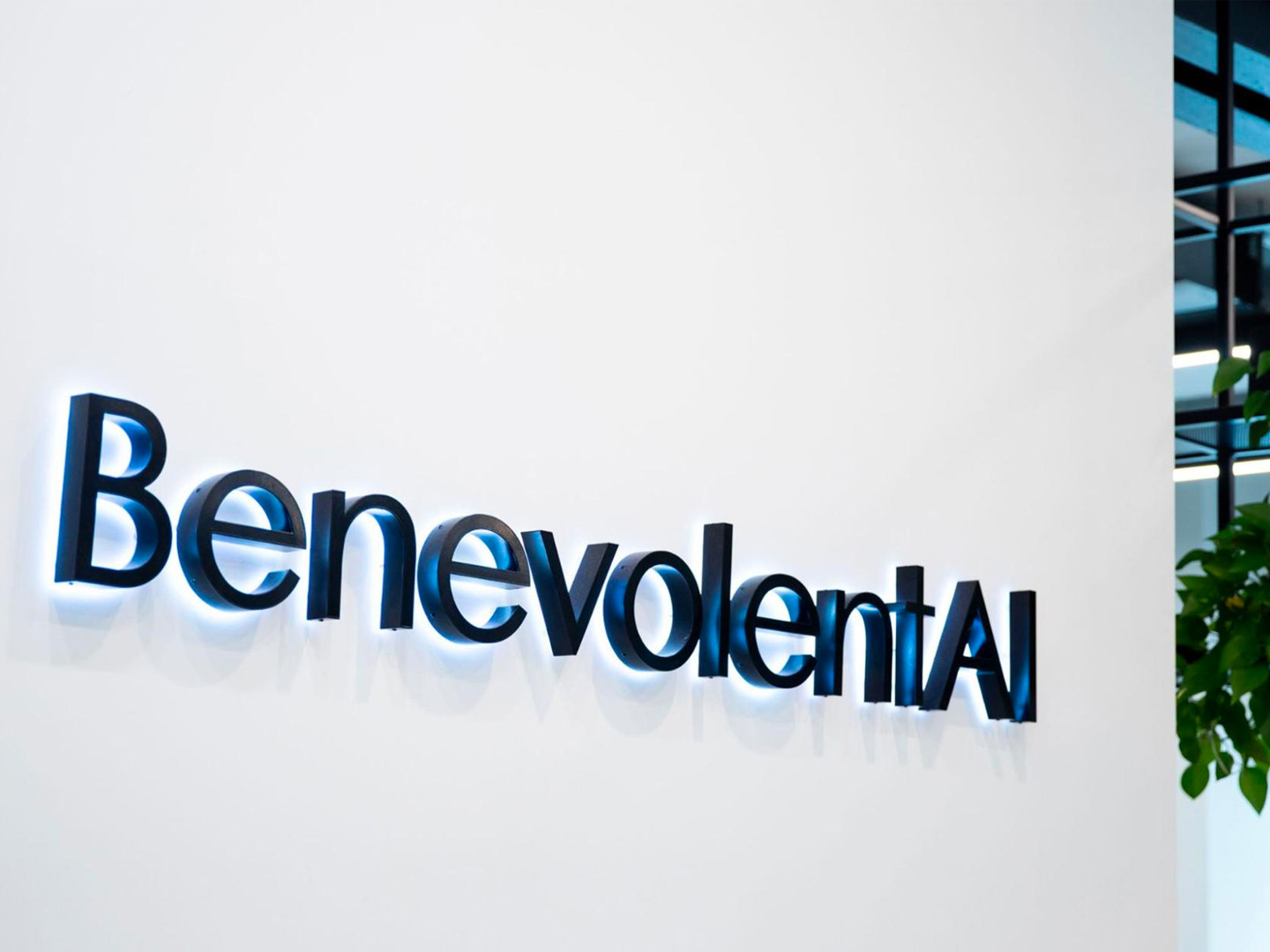Public disclosure of inside information in accordance with article 17(1) of the Regulation (EU) No 596/2014 on market abuse (Market Abuse Regulation)
- Successfully met primary endpoint with BEN-2293 found to be safe and well tolerated
- Secondary efficacy endpoints, to reduce itch and inflammation, were not achieved. However, initial analyses in the Per-Protocol population have shown a statistically significant treatment effect in Eczema Area and Severity Index (EASI) change from baseline for patients with an Atopic Dermatitis affected percentage body surface area (BSA) greater than 20% over time, suggesting potential for further clinical investigation
- The Company is conducting a review of the full dataset to help guide further development for BEN-2293 and it will report the full results at a later date, as warranted
London, UK, 5 April 2023: BenevolentAI ("BenevolentAI" or the "Company") (Euronext Amsterdam: BAI) announces top-line results from its Phase IIa, randomised, double-blind, placebo-controlled study of BEN-2293, a topical pan-Trk inhibitor. BEN-2293 is a selective inhibitor of the three tropomyosin-related kinases (Trk) receptors (TrkA, TrkB and TrkC) formulated to be administered topically in patients with mild-to-moderate AD.
The study's primary endpoint was safety and tolerability, while secondary endpoints of the study were also specifically powered to show the fraction of patients achieving an improvement in the Eczema Area and Severity Index (EASI) and the fraction of patients achieving an improvement in the pruritus Numerical Rating Scale (NRS).
In this Phase IIa study, 91 patients aged between 18-65 years with mild-to-moderate AD were randomised to receive either 1% BEN-2293 (n=49) or placebo (n=42) twice daily for 28 days on affected skin up to a maximum of 30% body surface area (BSA). BEN-2293 was shown to be safe and well-tolerated but did not demonstrate a statistically significant effect on NRS or EASI endpoints across the Intention-To-Treat (ITT) population.
However, initial analysis of percentage BSA affected by AD showed an EASI treatment effect for BEN-2293 in patients with greater extent of disease at baseline, with magnitude of treatment effect growing over time (p=0.0296). This result was also observed in the Per-Protocol population (p=0.0427) with the data at 28 days showing an interaction between treatment effect and disease burden (p=0.0237) such that a significant treatment effect for BEN-2293 over placebo is expected for subjects with BSA affected of 20% or greater.
This initial analysis suggests a new avenue for further clinical investigation.
Dr Anne Phelan, Chief Scientific Officer at BenevolentAI, said: "BEN-2293 was found to be safe and well tolerated in this study. Although the top-line efficacy findings are not conclusive, the significant relationship of EASI efficacy with affected BSA requires further investigation and supports the hypothesis of utilising a PanTrk inhibitor in AD. We will continue to review and analyse the complete dataset in order to fully understand the outcome and the next steps.”
Enquiries
Investors
Fleur Wood – VP Investor Relations
fleur.wood@benevolent.ai
investors@benevolent.ai
T: +44(0) 203 781 9360
Media
Rajin Kang - VP Communications
rajin.kang@benevolent.ai
T: +44(0) 203 781 9360
FTI Consulting:
Ben Atwell/Simon Conway/Victoria Foster Mitchell
T: +44 203 727 1000
BenevolentAI@fticonsulting.com
About BenevolentAI
BenevolentAI (AMS: BAI) is a leading, clinical-stage AI-enabled drug discovery and development company listed on the Euronext Amsterdam stock exchange. Through the combined capabilities of its AI platform, scientific expertise, and wet-lab facilities, BenevolentAI is well-positioned to deliver novel drug candidates with a higher probability of clinical success than those developed using traditional methods. The Benevolent Platform™ powers BenevolentAI’s in-house drug pipeline and it maintains successful collaborations with AstraZeneca, as well as leading research and charitable institutions. BenevolentAI is headquartered in London, with a research facility in Cambridge (UK) and a further office in New York.
Forward-looking Statements
This release may contain forward-looking statements. Forward-looking statements are statements that are not historical facts and may be identified by words such as "plans", "targets", "aims", "believes", "expects", "anticipates", "intends", "estimates", "will", "may", "should" and similar expressions. Forward-looking statements include statements regarding objectives, goals, strategies, outlook and growth prospects; future plans, events or performance and potential for future growth; economic outlook and industry trends; developments in BenevolentAI’s markets; the impact of regulatory initiatives; and/or the strength of BenevolentAI’s competitors. These forward-looking statements reflect, at the time made, BenevolentAI’s beliefs, intentions and current targets/aims. Forward-looking statements involve risks and uncertainties because they relate to events and depend on circumstances that may or may not occur in the future. The forward-looking statements in this release are based upon various assumptions based on, without limitation, management's examination of historical operating trends, data contained in BenevolentAI’s records, and third-party data. Although BenevolentAI believes these assumptions were reasonable when made, these assumptions are inherently subject to significant known and unknown risks, uncertainties, contingencies and other important factors which are difficult or impossible to predict and are beyond BenevolentAI’s control. Forward-looking statements are not guarantees of future performance, and such risks, uncertainties, contingencies and other important factors could cause the actual outcomes and the results of operations, financial condition and liquidity of BenevolentAI or the industry to differ materially from those results expressed or implied by such forward-looking statements. The forward-looking statements speak only as of the date of this release. No representation or warranty is made that any of these forward-looking statements or forecasts will come to pass or that any forecast result will be achieved.
Back to press releases and in the media



